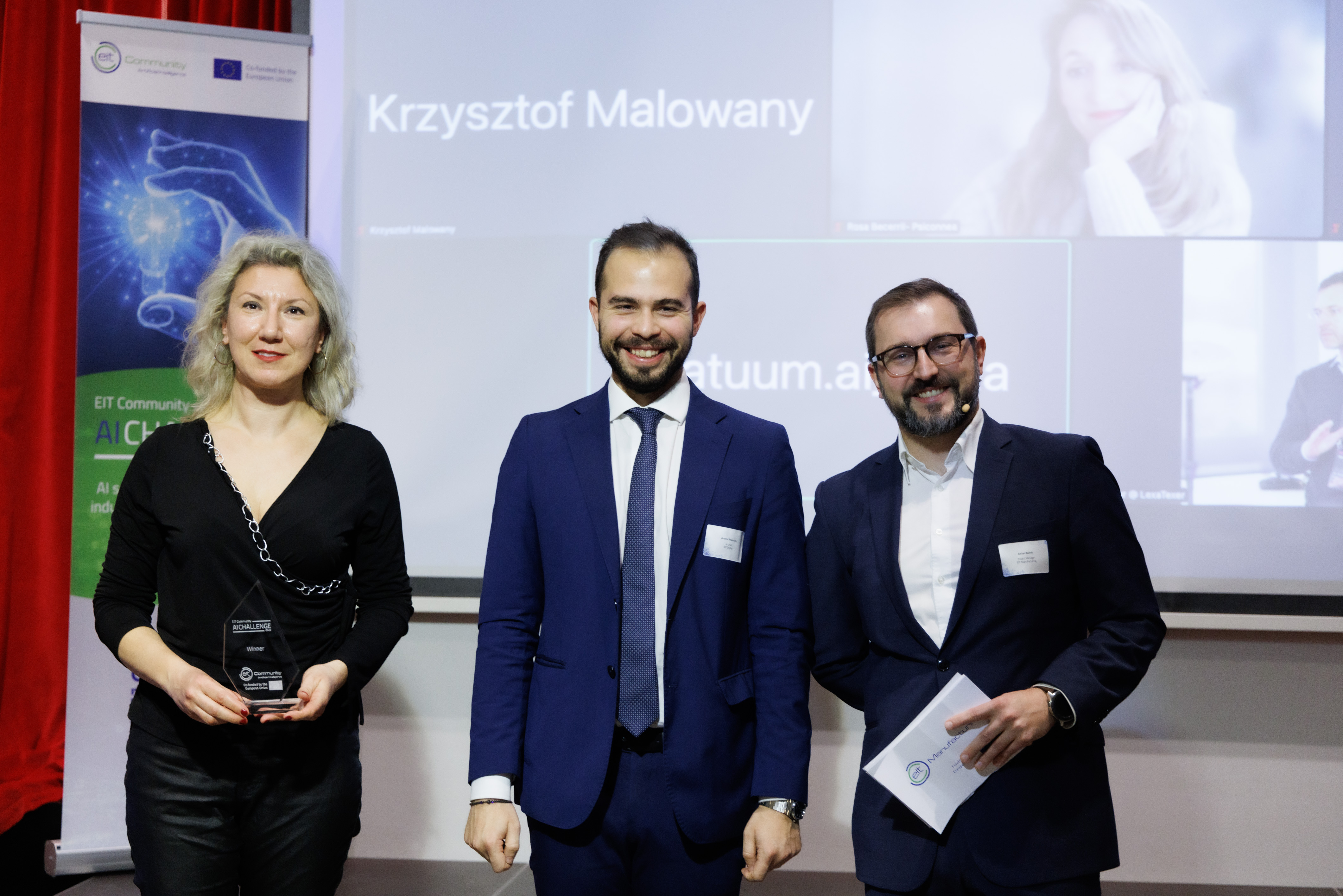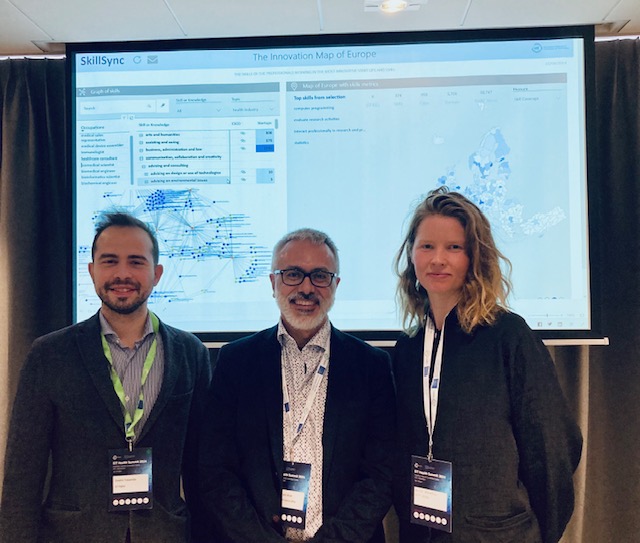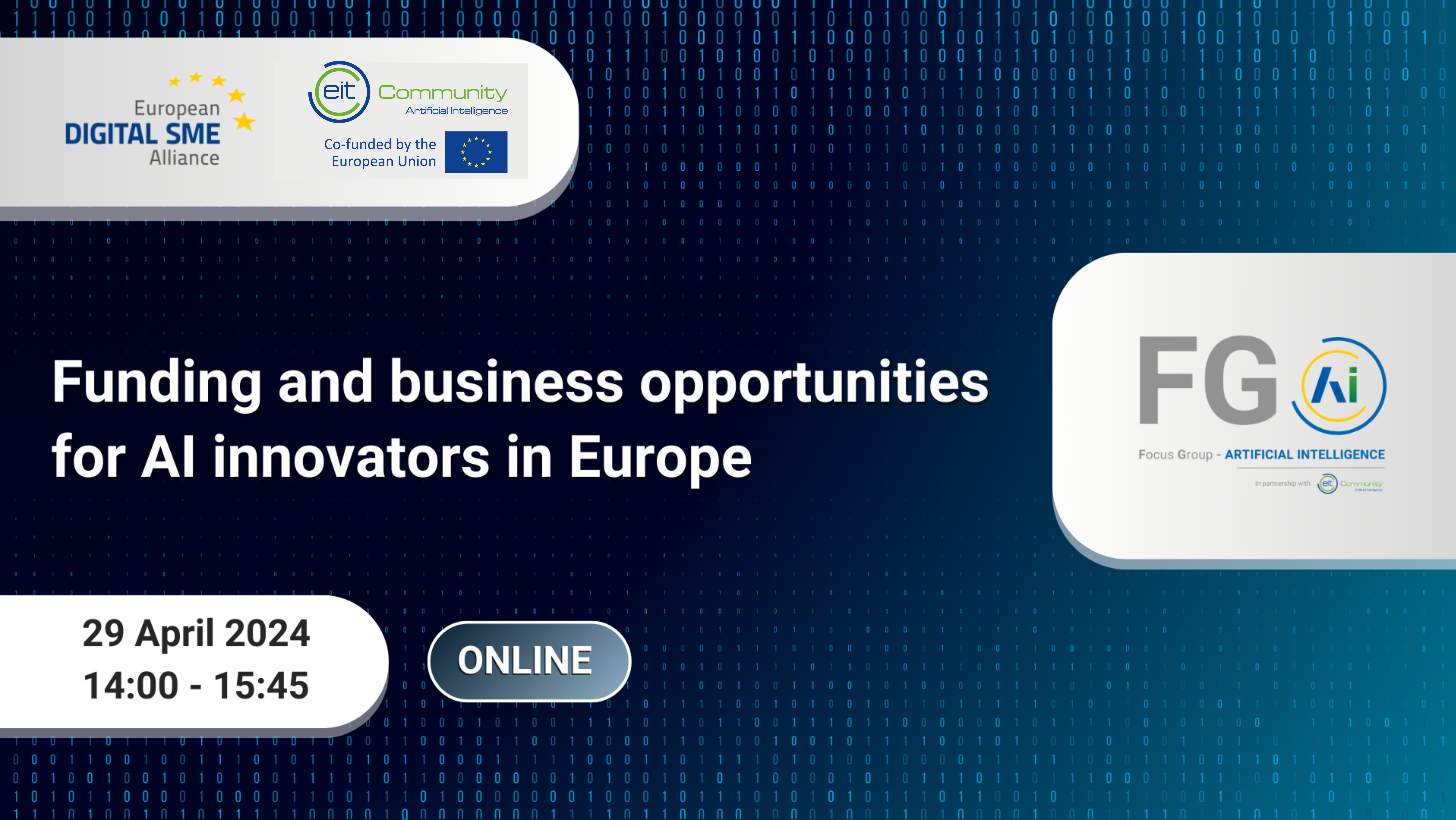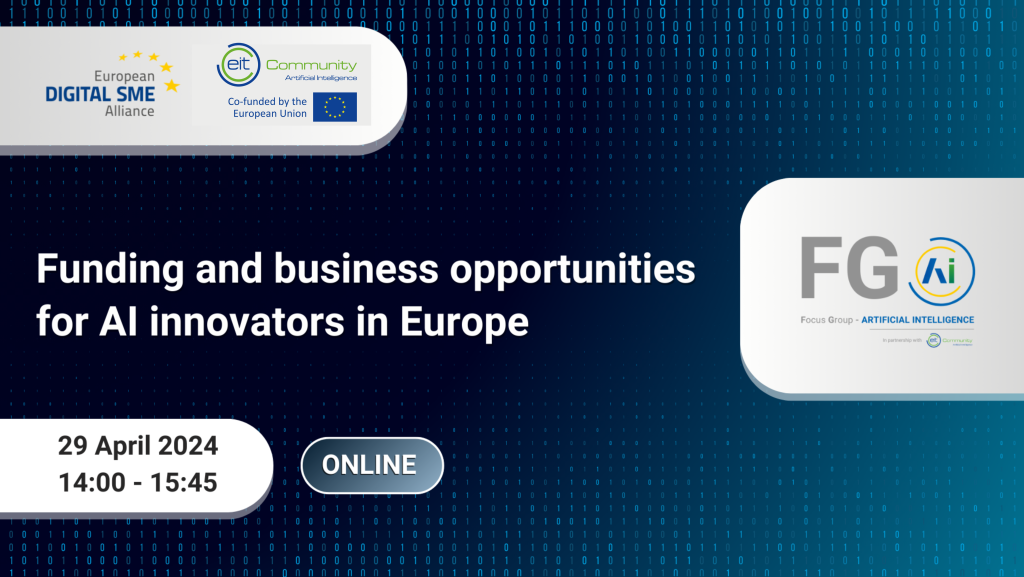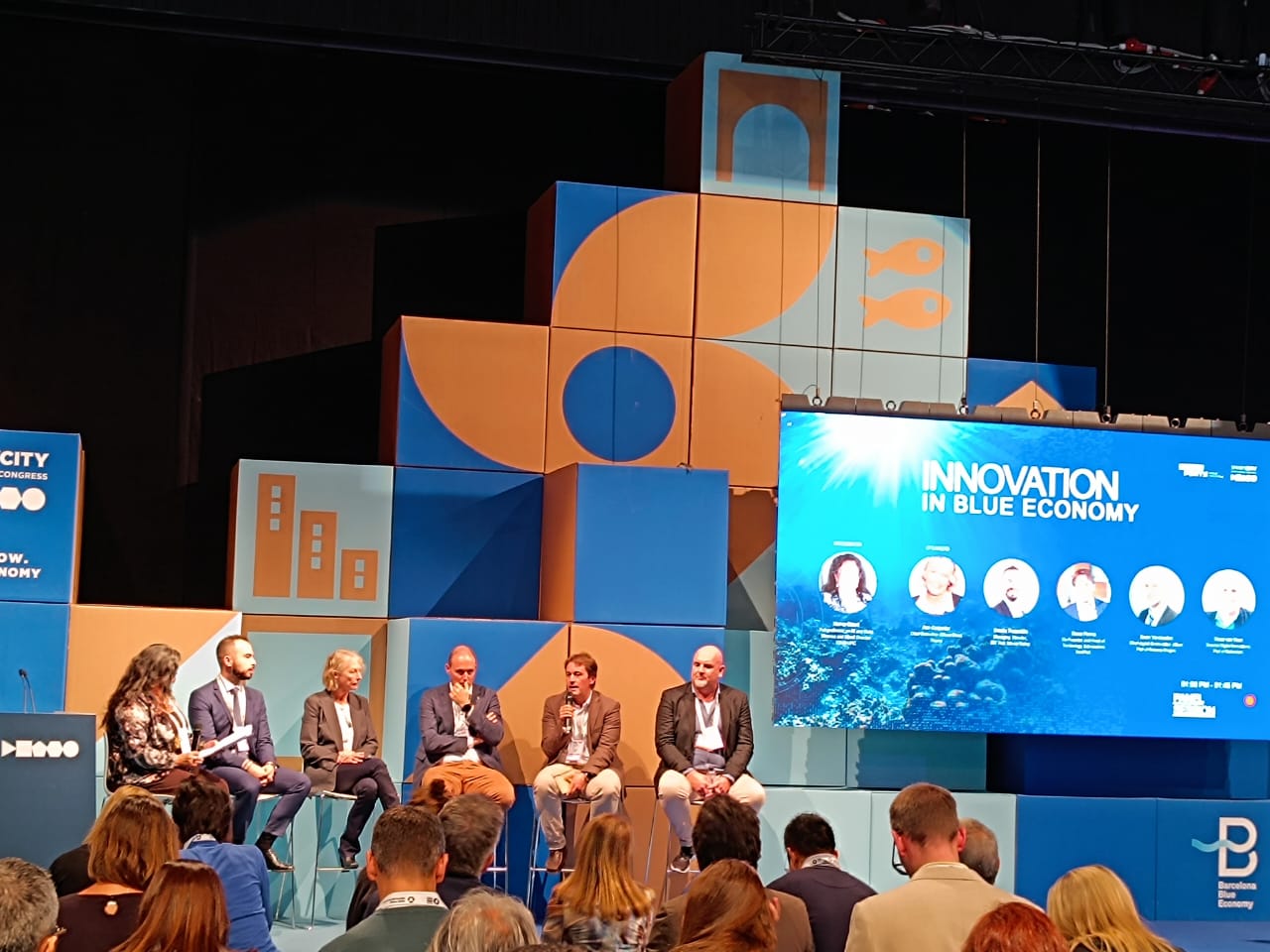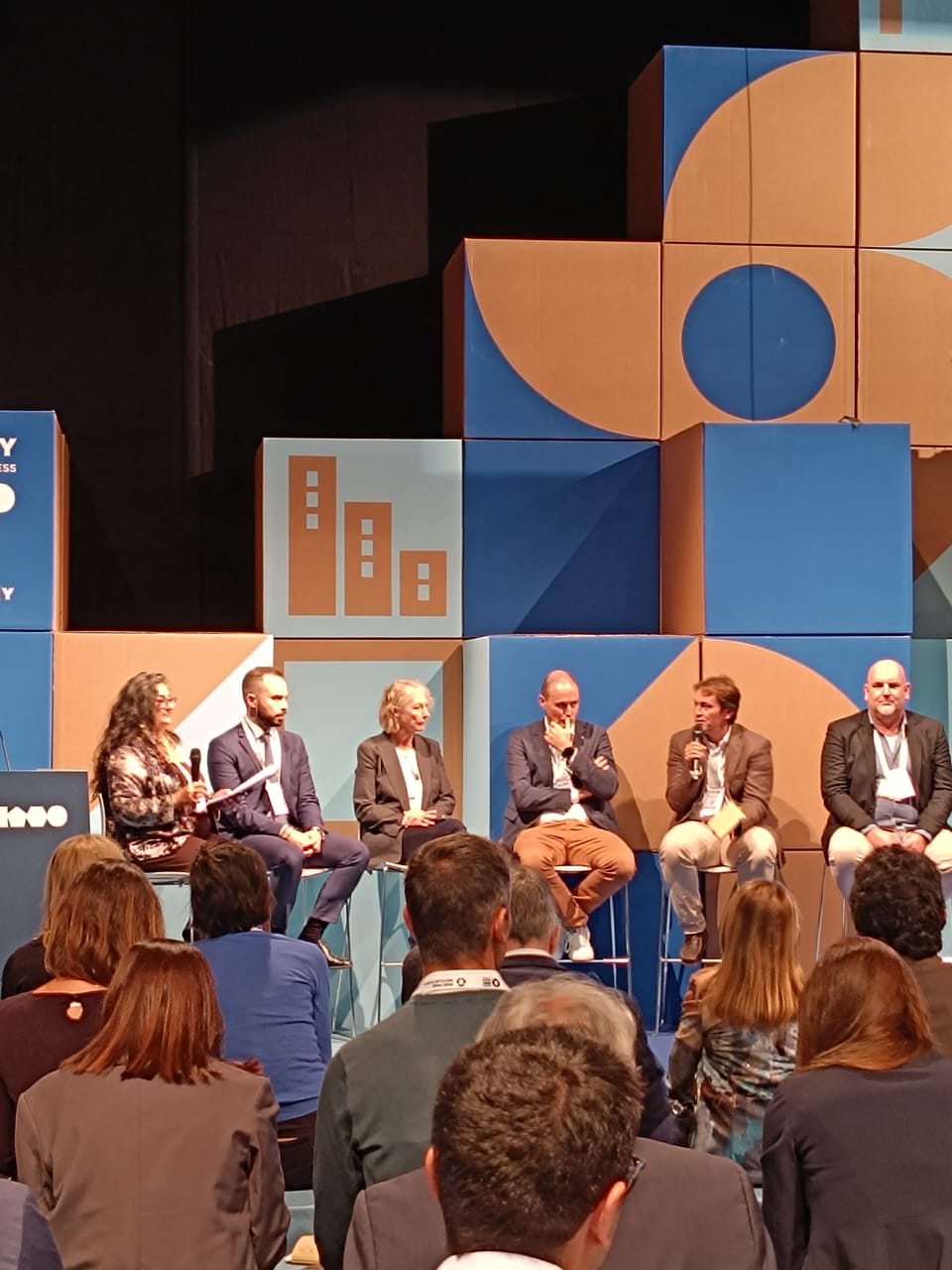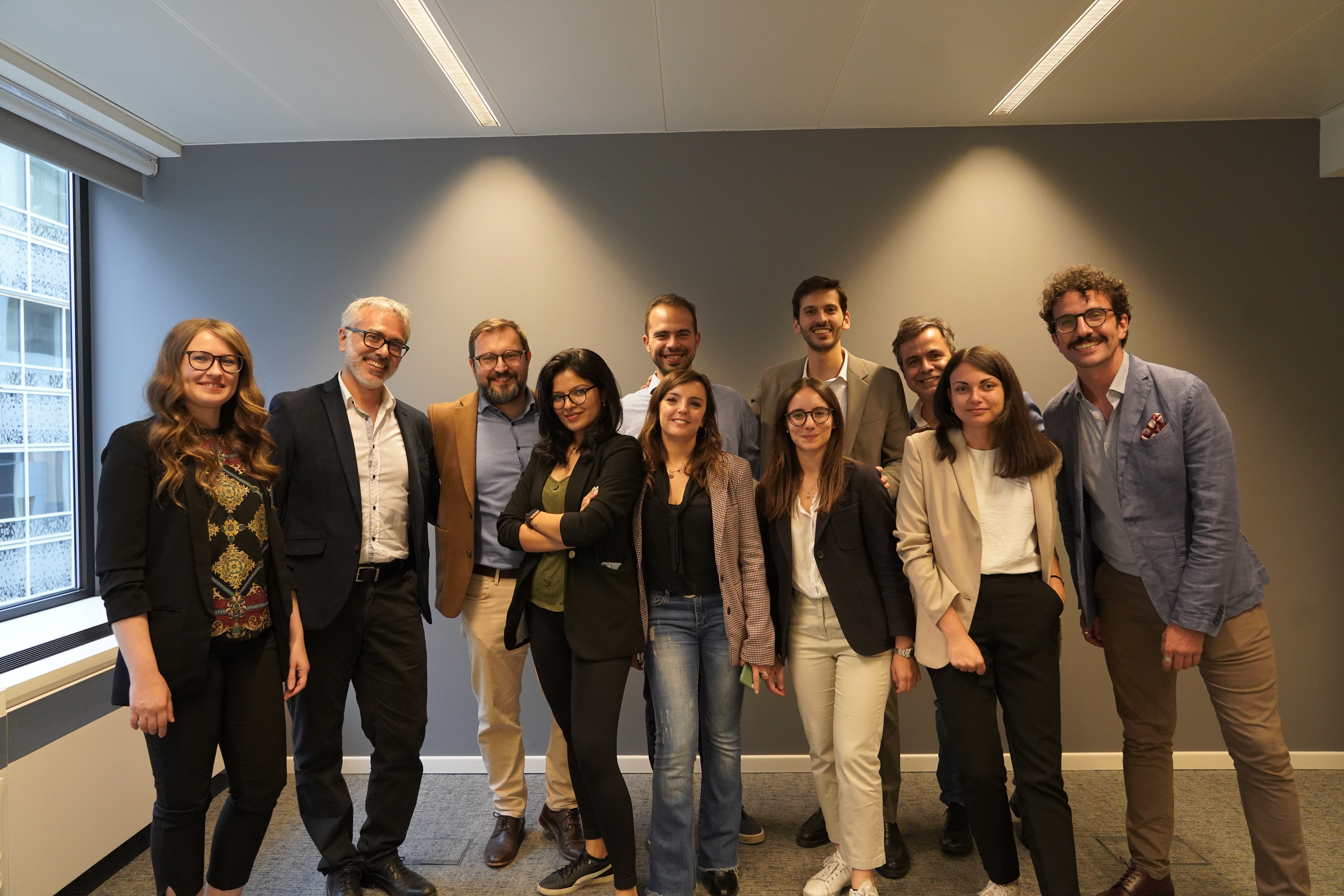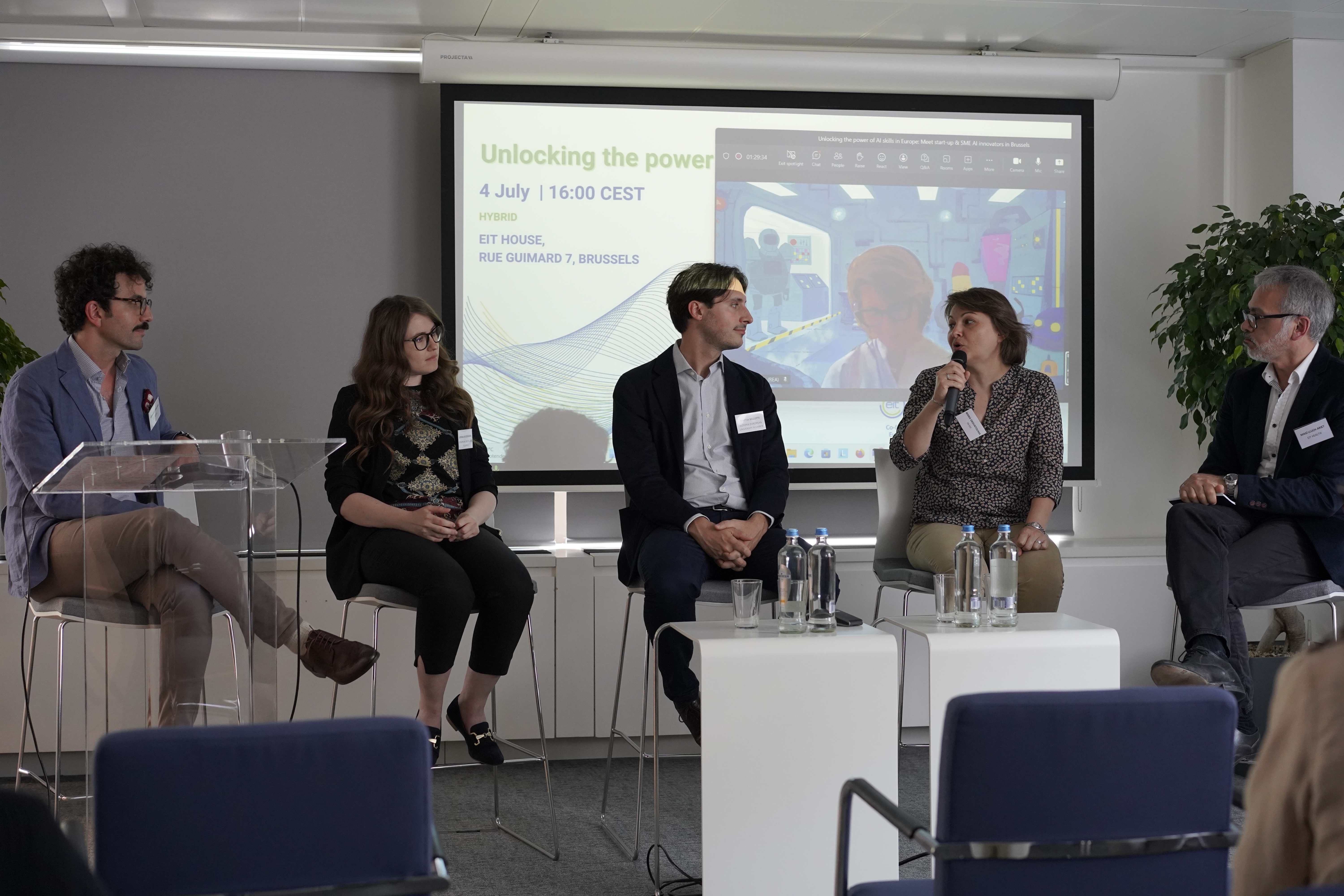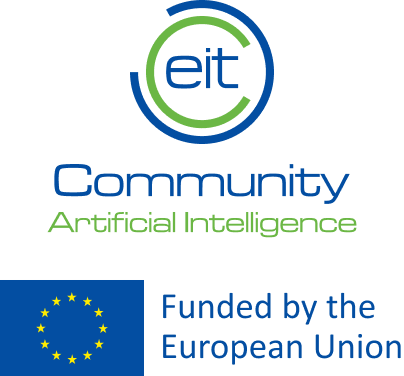The EIT AI Community, in collaboration with AI and Beers and the European DIGITAL SME Alliance, successfully launched AI Agora - an initiative aimed at fostering a vibrant AI ecosystem in Europe.
This dynamic gathering provided a unique space where ideas flourished, where experts and newcomers alike could explore the latest advancements, challenges, and opportunities in AI.
An Evening of Connection and Conversation
AI Agora’s inaugural event took place in Thessaloniki, Greece, on September 9th, 2024. It featured engaging discussions, networking, and collaboration among AI innovators, researchers, entrepreneurs, and enthusiasts. Attendees connected with industry leaders, learned about EIT funding opportunities, and explored how AI can drive societal and economic impact across Europe.
The event emphasized EIT Digital’s commitment to driving digital transformation and fostering technological leadership across Europe. By connecting AI visionaries and enablers, AI Agora created a space for productive dialogues, collaborative opportunities, and the exchange of groundbreaking ideas.
Attendees explored how AI can drive societal and economic impact, gaining insights into EIT Digital’s support mechanisms. The event showcased how we are committed to empowering entrepreneurs and researchers to navigate complex challenges, access resources, and bring transformative AI solutions to market.
A Successful Event for European AI
Participants delved into cutting-edge AI topics, gained insights into the latest advancements, and formed valuable connections within the community. The event underscored the importance of collaboration in strengthening Europe’s AI landscape.
AI Agora marked the beginning of a movement to shape the future of artificial intelligence in Europe. Its launch reaffirmed EIT Digital’s mission to ensure that we emphasise AI’s benefits, promoting a future where European innovation leads the world. We aim to support a thriving AI ecosystem in Europe: one in which where ideas become impact, and innovation drives progress.



